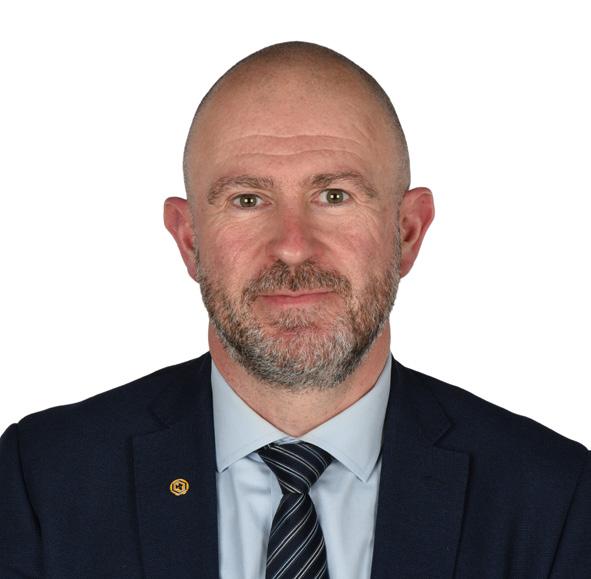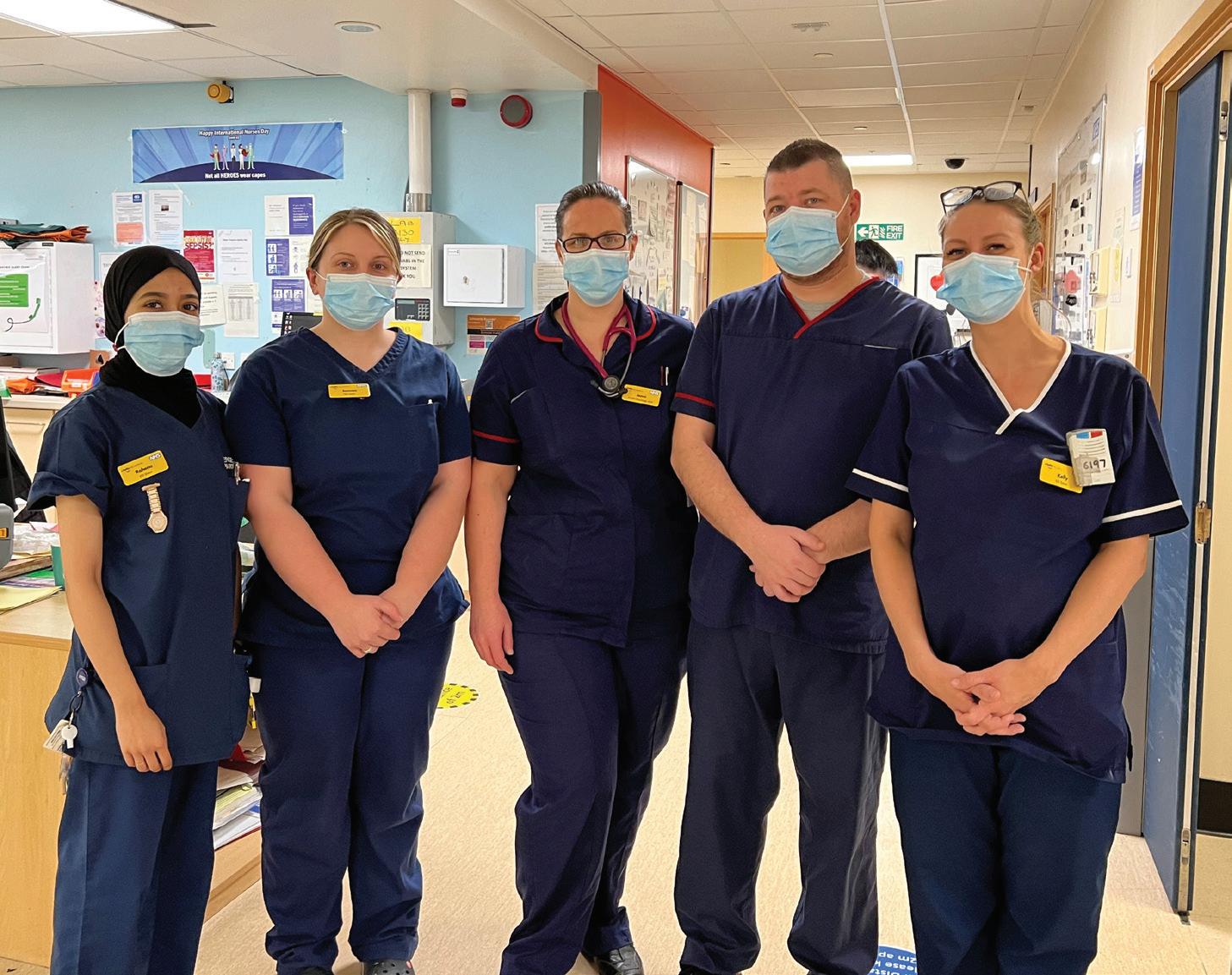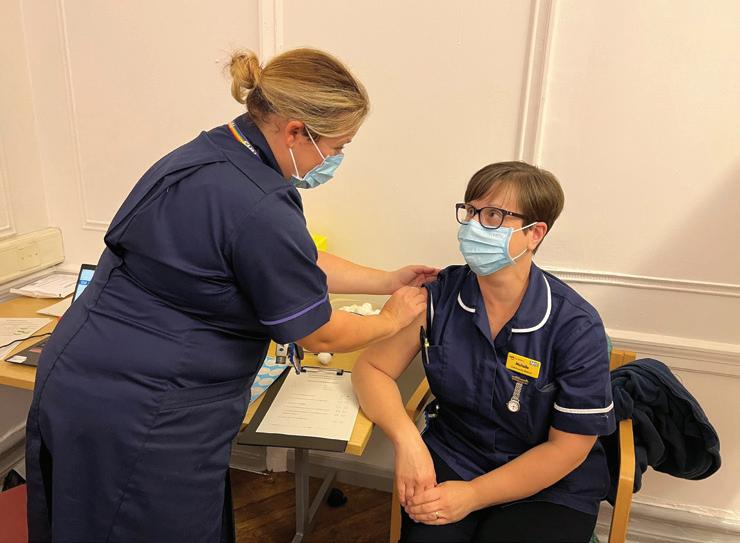
2 minute read
Richard talks about: What we've achieved and how we're moving forward
Richard Beeken, Chief Executive
This month colleagues, I want to express my gratitude for the professionalism and kindness you have demonstrated over the last few weeks in the face of extreme challenges on our services.
Advertisement
We have come through a very tough period, like nothing we have seen before. We declared three critical incidents, something that is simply unheard of at our Trust and certainly not a decision we took lightly as an executive team.
During that period we were able to safely expand the bed base, provide additional medical cover and ensured senior leadership were on the ground to support our teams. I fully accept that some of the coordination of this felt chaotic to many clinical staff and I would like to apologise for that.

The response we saw from teams was really positive and had an impact on deescalating rising pressure on waits in ED and ambulance offloads. In addition, our partners, in particular the local authorities in Sandwell and Birmingham as well as Malling Health, responded to the system pressures and provided extra staff and increased capacity to support admission avoidance and discharges.
Adult social care played their part hugely and met with our leadership team within Primary Care, Communities and Therapies Group (PCCT) on a daily basis to support and assist with developing a rapid response to issues. The combined efforts of adult social care and PCCT led to record numbers of people being discharged each day on complex discharge pathways 1-4.
Sandwell Place (which we host as an NHS Trust) has commissioned extra beds across the community and increased care packages across voluntary and community services to support with wraparound welfare and care.

In March, a full review of our winter plan will be discussed at the Trust Board meeting. This will review activity, our predictions and the recruitment plans for the services for which we were able to secure additional funding. It will also critically review our escalation arrangements and our critical incident policy. Going forward we have continued with some of the additional staffing to support admission avoidance and PCCT continue to recruit to front door and admission avoidance services to strengthen this aspect of our winter plan. We have now been able to close the majority of the surge beds, however, they do remain as a backup should demand necessitate and should we assure ourselves we can safely staff them.
Our discharging processes are starting to have a positive impact on capacity and patient care. We now run virtual wards for frailty, respiratory, epicentre (hospital at home), paediatrics and palliative care with cardiology due to start soon. At the time of writing this column, since October 2022 we have had 233 admissions and the average length of stay is 7 days. The integrated discharge hub has discharged 1,876 people with complex needs over the last five months. The team have also doubled the number of people discharged each day who have complex needs; now discharging up to 22 people a day.
RICHARD'S LAST WORD
As an integrated Trust there is always more we can do to ensure we are successful in delivering for our patients at a time when members of public are accessing our services in higher numbers than ever before or have a higher acuity on admission, than ever before. We could be braver in supporting people with ongoing care needs to go home earlier. Consider pre-emptive discharge planning as the patient arrives in ED, assessment units and the wards. If a patient has complex needs, alert the integrated discharge hub and virtual wards so they can plan to support the patient to get home. We cannot keep opening additional physical beds to respond to changes in demand –admission avoidance and discharge facilitation are the key to a more stable future.
Above all, please include all stakeholders in the discharge process including the patient and their family or their carers. Everyone needs to understand what the discharge pathway means for them and we cannot have enough conversations with our service users about nuanced and complex journeys.
Thank you for all you do.








